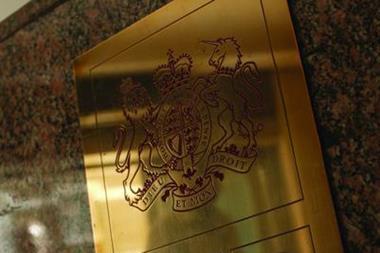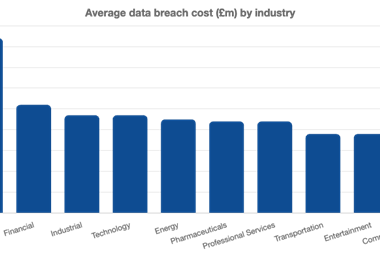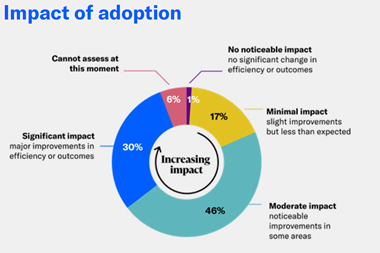These days 'enhanced' due diligence has become an integral part of every transaction, especially when one in every 10 deals is pulled by financial institutions following a background check. Companies are taking every precaution to prevent becoming the next victim of financial fraud or deception. It is therefore not surprising that many boards are looking towards specialist corporate investigators to carry out enhanced due diligence prior to major transactions.
Due diligence is essentially research and analysis into factors that could affect a company's ability to compete in a market sector. Huge sums are spent every year on it in anticipation of mergers and acquisitions, MBOs, MBIs, general venture capital funding, or re-financing. However, at least 50% of acquisitions fail to meet their original financial targets.
Despite this the attraction of acquisitions and mergers continues to grow.
Lawyers who study and verify contractual words, and accountants who audit the financials, generate most of the costs, while little is spent on looking behind the contracts, profit and loss accounts and balance sheets, or at the key individuals and trading relationships. This need is filled by specialist corporate investigators, who research the background to the proposals and assess potential partners for hidden agendas. They investigate the corporate history, associates, litigation records, liabilities, assets and general reputation of partners to minimise the risk of financial exposure.
For example, prior to a recent major flotation a certain stockbroking firm was in the final processes of preparing a client for full listing on the London Stock Exchange. The corporate finance team felt that there was something not quite right about the management of the company that was coming to market and brought in my own organisation to look a little deeper into things.
It was clear that the broking firm had their own reputation in mind.
Drawing upon a wide range of contacts and knowledge, we unearthed enormous discrepancies outside the UK, which would have created a media frenzy had the IPO progressed any further. The managing director of the company was wanted by Interpol in two countries for drug trafficking, among other charges. The listing was immediately pulled, and blushes spared. The reputation of the broking firm would have been damaged irreparably had this company come to market.
Cases such as this are not everyday occurrences, but sometimes there is value simply in proving that everything is in order. By dispelling suspicion, enhanced due diligence can pave the way for clear working relationships.
For example, prior to a merger we were asked to investigate rumours involving a director of the lead company. It was revealed that the director had been named in a DTI report, but had been cleared of all wrongdoing. Clearly confidentiality is paramount in handling such investigations.
Understandably, companies are increasingly relying on their accountants and lawyers for comfort in relation to the areas above. However, legal documents and historic accounts, the foundation stones of due diligence, can sometimes only provide half the story. It is also worth noting that when a company comes under threat, directors cannot rely solely on police involvement. Errors or poor reaction time in all these areas can cause serious damage to integrity and reputation.
Screening
Investigating unknown quantities in corporate transactions is an obvious instance in which corporate investigators are employed by senior management.
Putting the value of the assets and brands aside, it is worth remembering that the most valuable yet under-researched aspect of a company is the people. Their worth and integrity can make or break a deal, particularly with regard to fraudulent behaviour.
Corporate fraud is extremely far reaching and varied in both scale and method of operation. At its most severe, it can destroy even the largest and most respected of companies. There is also the ever-present threat of losing proprietary information through lax security.
Although most major fraud stories have been generated in America, there has been a knock-on effect throughout the world. In Europe, major listed companies are facing a tide of public suspicion, and are responding by vetting existing staff, and candidates for top positions, as never before.
In the UK the problems have been exacerbated by the introduction of the Financial Services Act. This has made financial services regulation more stringent, placing responsibility on the individual rather than the company.
The combination of these factors has resulted in professional companies involved in the once secretive world of private investigation, emerging as a highly relevant branch of the service industry.
One of the fastest growing of their services is employee screening. Some companies have found, to their detriment, that the greatest losses are often sustained at the hands of their own employees, and more companies are turning to pre-employment screening as a first line of defence. Obviously, screening is vital at board level, but it now extends from outside consultants to lower-paid contract workers such as cleaners, and also takes in key personnel within the company.
However, with white-collar crime costing the UK £14bn annually, pre-employment screening - even when combined with due diligence - is not enough. There is a distinct need for financial professionals to look beyond the balance sheets and legal contracts, and to investigate relationships and individuals in order to minimise financial risk. Companies really do need to know the backgrounds of the people they employ and acquire.
This information cannot be unearthed by simply searching databases. Such a search would not have helped in a recent case where a finance director was discovered to have given false details and made fraudulent claims on his curriculum vitae. Nor would it have helped in another case where it was discovered that a high profile chief executive, whose company was seeking a merger, had previous criminal convictions which did not show up in the initial due diligence.
So, in many cases, a full business and personal profile is essential.
It will assess the commercial framework within which a potential candidate has worked, including relationships with customers, suppliers and colleagues.
Specific requirements will vary depending upon the background to the transaction, and no situation is ever the same.
Corporate investigations companies working in the field of due diligence are increasingly coming to the table alongside the company's lawyers and accountants. As the soft issues in the due diligence process are increasing in prominence, the ability to provide comfort quickly and efficiently can lead to considerable savings in abortive transaction costs and management time. It can also eliminate costly and inappropriate investment or divestment.
Ultimately the client's reputation and integrity and that of its advisers is protected.
Cliff Cavender is managing director of corporate investigations company Capcon Holdings plc, Tel: 020 7352 8151, E-mail: cliffc@capconplc.com
FIGHTING CRIME
In March, the Secretary of State for the Home Department presented One Step Ahead: A 21st Century Strategy to Defeat Organised Crime to Parliament.
This White Paper describes initiatives for combating crime, including compelling individuals to give evidence. Faced with similar problems during the 1980s, in the context of white collar crime, the Government established the SFO and gave the director powers to compel individuals to co-operate with investigations - with safeguards to ensure that any self-incriminating material cannot be used, and nor can material subject to legal professional privilege. Similar powers are enjoyed by a number of regulatory bodies like the Financial Services Authority and Companies Act Inspectors.
ICC CODE
The International Chamber of Commerce's rules of conduct address extortion and bribery in international business transactions. They include:
- Extortion: No one may, directly or indirectly, demand or accept a bribe.
- Bribery and 'Kickbacks: a) No enterprise may, directly or indirectly, offer or give a bribe and any demands for such a bribe must be rejected.
b) Enterprises should not (i) kick back any portion of a contract payment to employees of the other contracting party, or (ii) utilise other techniques such as subcontracts, purchase orders or consulting agreements, to channel payments to government officials, to employees of the other contracting party, their relatives or business associates.
- Agents: Enterprises should take measures reasonably within their power to ensure: a) that any payment made to any agent represents no more than an appropriate remuneration for legitimate services rendered by such agent; b) that no part of any such payment is passed on by the agent as a bribe in contravention of these Rules of Conduct; and c) that they maintain a record of the names and terms of employment of all agents retained by them in connection with transactions with public bodies or state enterprises.
This record should be available for inspection by auditors and, on specific request, by appropriate government authorities under conditions of confidentiality.
- Political Contributions: Contributions to political parties or committees or to individual politicians may only be made in accordance with the applicable law, and all requirements for public disclosure of such contributions shall be fully complied with. All such contributions must be reported to senior corporate management.



















